| Architect |
Wandel Hoefer Lorch |
| Date Built |
Completed
2006 |
| Location |
Sankt-Jakobs-Platz |
| Description |
|
|
The Ohel
Jakob (meaning Jacob’s Tent)
synagogue in Munich’s
Sankt-Jakobs-Platz is one of a
cluster of three buildings (all
by the same architectural
practice) that make up the
Jewish Centre. The
synagogue is a cubic structure
featuring a formidable stone
wall composed of blocks of
travertine.
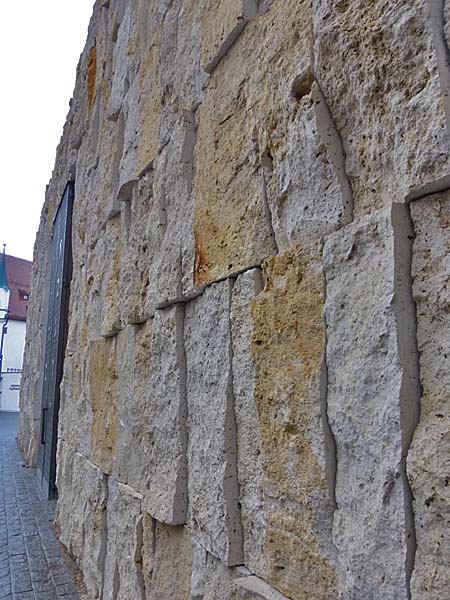 Rising above the wall is a glass and steel structure intended to represent a tent and symbolise Moses’ 40 year journey through the desert. 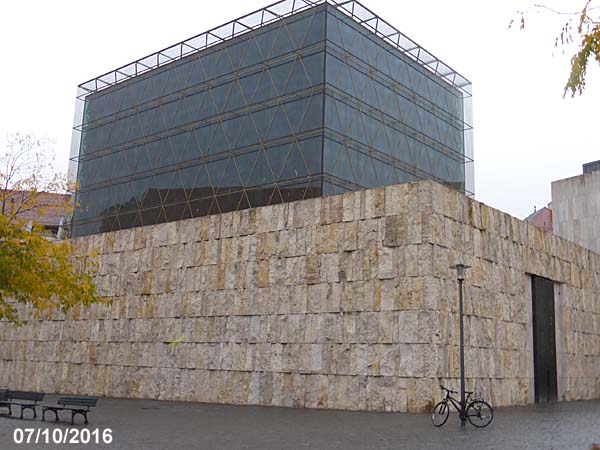 The building is oriented towards the east and the main entrance has metal doors on which are Hebrew letters depicting the Ten Commandments. 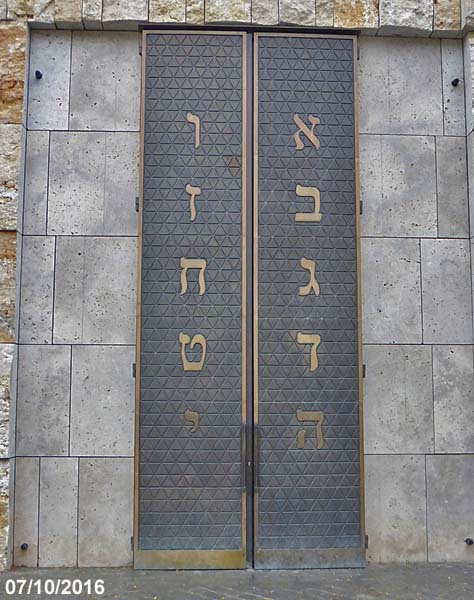 Inside there is room for 550 worshippers. The cornerstone of the building was laid on 9 November 2006, the 68th anniversary of Kristallnacht. The Munich Jewish Museum’s website says of the synagogue that its design was, “Inspired by two recurring architectural forms in the history of Judaism, the temple and the tent, the new synagogue fluctuates between stability and flexibility. These two states significantly govern the actual interior and exterior of the space.” 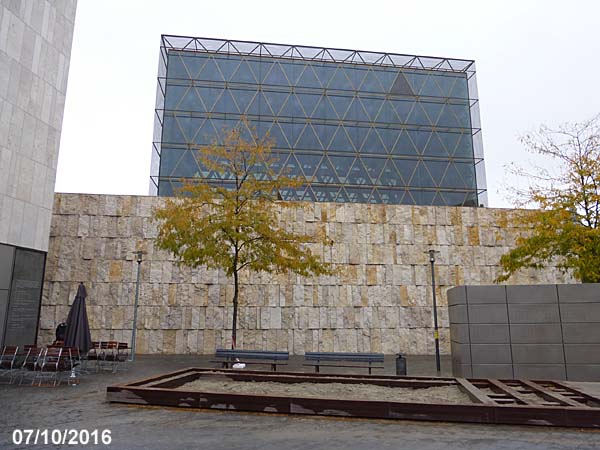 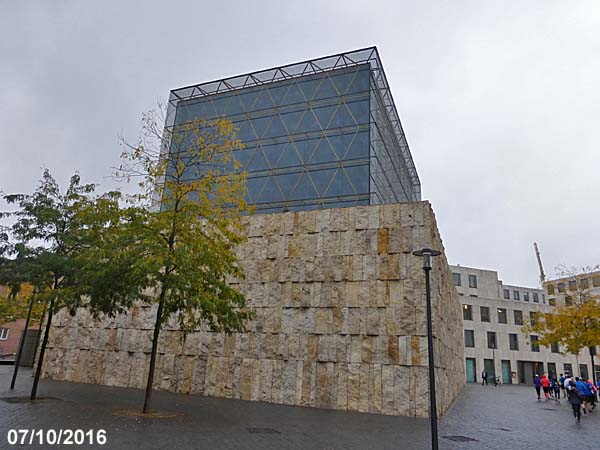 The Centre
also includes the Munich Jewish
Museum described as, "...
a freestanding cube .... Its
transparent ground floor
lobby, glazed on all four
sides, functions not only as
a display window but also as
a public space. Here,
visitors can find the
information desk, museum
bookstore, and Café-Bar. The
two floors above house our
changing exhibitions,
Learning Center, and
Library. The Jewish Museum’s
permanent exhibition is
located on the lower level."
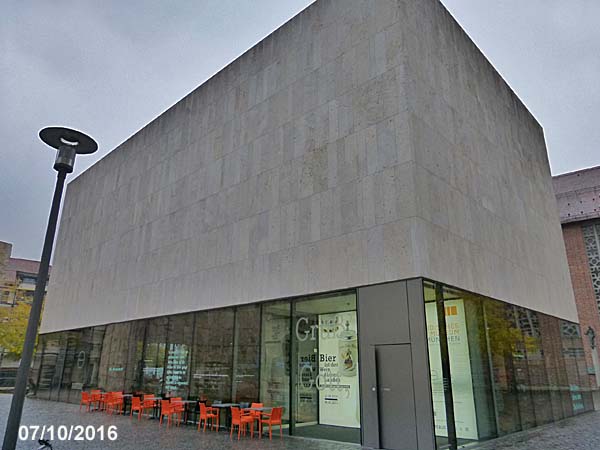 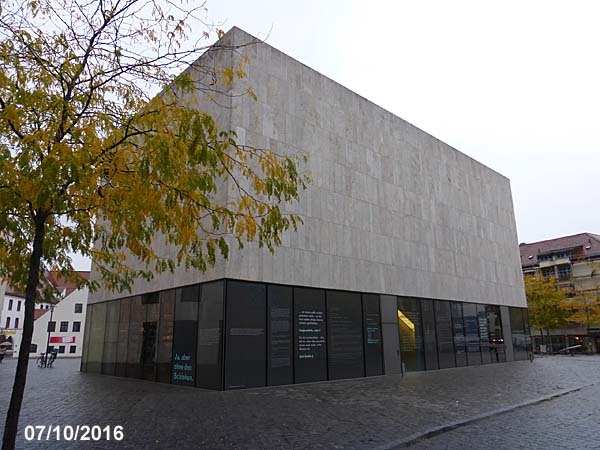 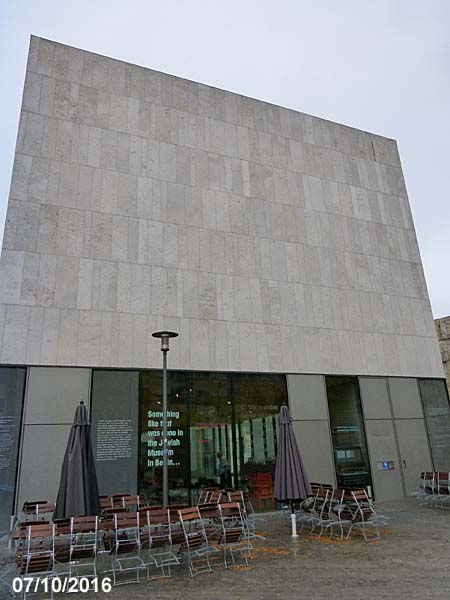 The ground-floor windows of the museum are decorated with quotations like the one below. 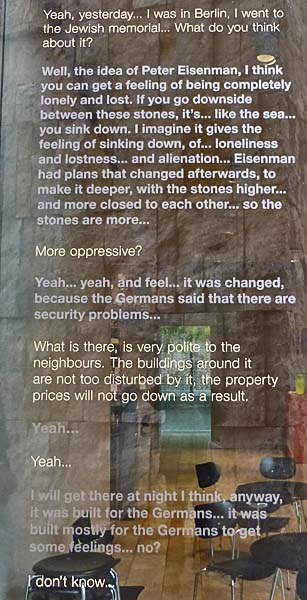 The third element of the Jewish Centre in the square is the Community Centre. 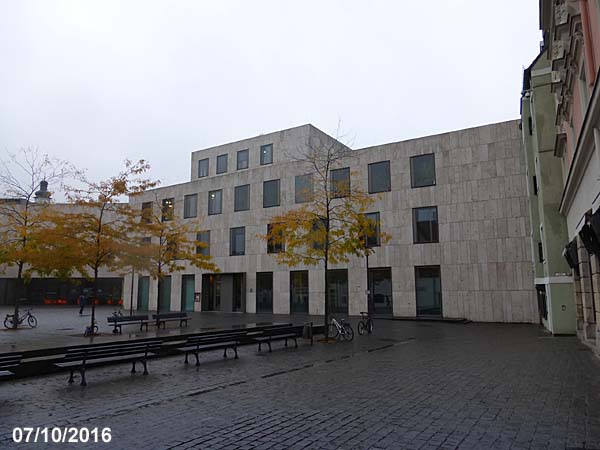 Of this
building the museum's website
says, "... The new
multipurpose community
center has been created to
meet the religious, social
and cultural needs of a
rapidly growing community.
With the increased
immigration of individuals
from the CIS states of the
former Soviet Union, the
Jewish community has grown
to include approximately
9,000 members. The center
will provide services that
range from a public
elementary school, a
kindergarten and a youth
center, to a community
auditorium, kosher
restaurant, and the
administrative offices and
social services department
of the Jewish community."
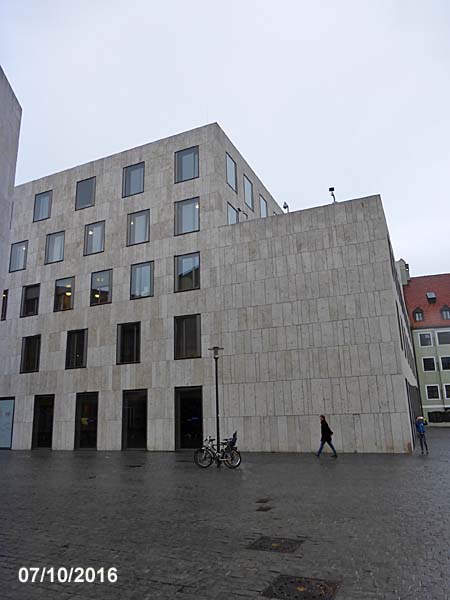 |
|
|
Ohel Jakob Synagogue,
Munich, Germany
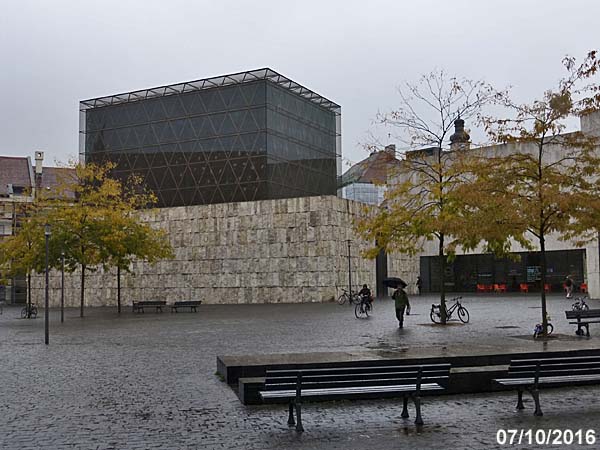 |
